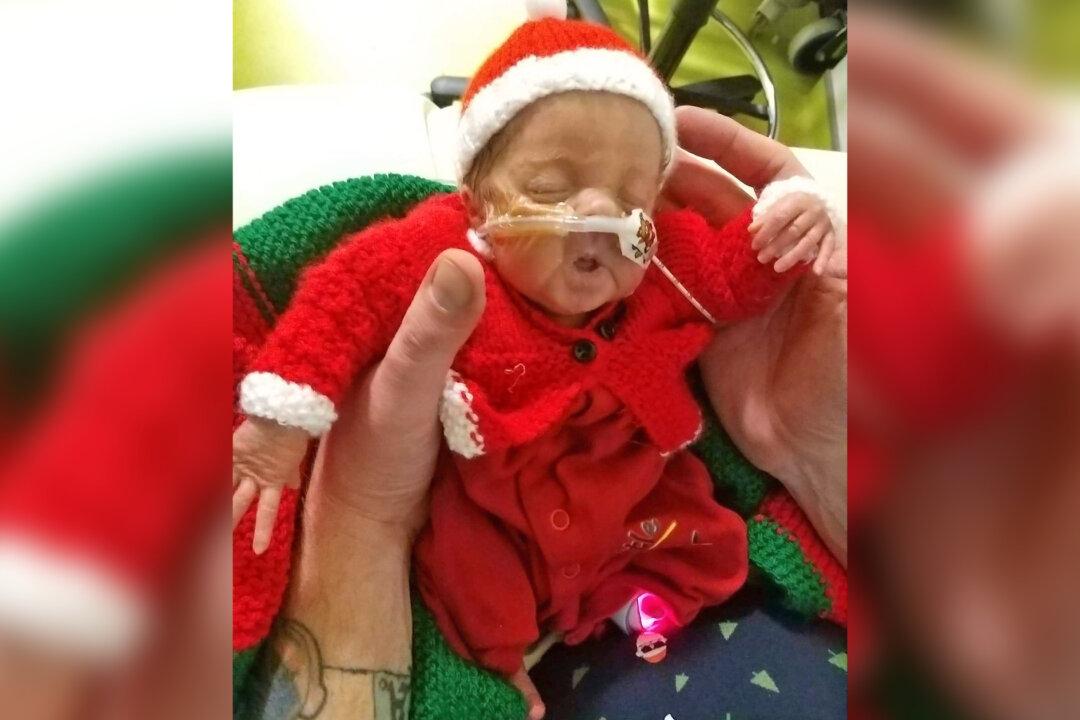British Parents who were told every day for four weeks that their preemie daughter was not going to survive prepare to celebrate the 2020 Christmas with their now 1-year-old bundle of joy.
Parents Emma Griffin, 42, from Droitwich in Worcestershire, and Scott Woodland, say that they are on top of the world as they get ready to celebrate the significant milestone in their baby daughter’s life journey. Little Iris, who was born 12 weeks early, was not expected to survive by medics.





